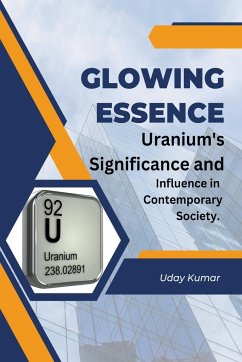Revealing the Legacy of Uranium: Traversing the Past, Present, and Future The world has been forever changed by the radioactive element uranium, which has a rich historical background. Uranium has a rich and diverse history, spanning from its discovery in the late 18th century to its crucial role in nuclear energy. This essay explores the socio-political, scientific, and historical facets of uranium and how its legacy has influenced and will continue to shape our world. Historical Angle: When German chemist Martin Klaproth discovered a new element in the mineral pitchblende in 1789, the history of uranium officially began. In honor of the recently discovered planet Uranus, he gave it the name uranium. Klaproth had no idea that this component would be so important to the events that would unfold in the annals of human history. When nuclear physics is developed in the 20th century, uranium's legacy is drastically altered. The enormous energy contained in uranium atoms may be extracted thanks to the revolutionary discovery of nuclear fission discovered in 1938 by German scientists Otto Hahn and Fritz Strassmann. However, this finding had far-reaching implications because it opened the door for the creation of nuclear weapons. When atomic bombs were dropped on Hiroshima and Nagasaki during World War II, uranium was never used as a weapon of mass destruction again. Global efforts to govern and oversee the use of nuclear technology were spurred by the horrors of nuclear war, and as a result, the United States established the Atomic Energy Commission and then the International Atomic Energy Agency (IAEA).







